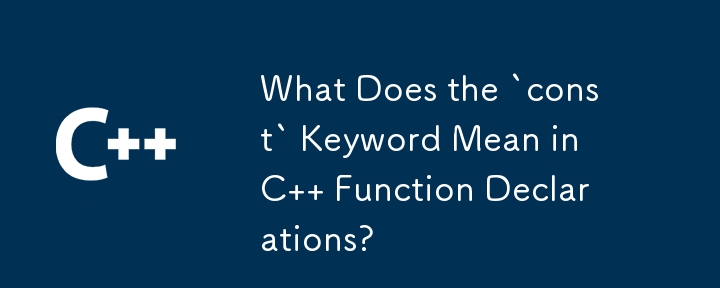

Unveiling the Significance of "const" in Function Declarations
In the realm of C class definitions, you may encounter the "const" keyword appended to the end of a function declaration. This seemingly innocuous addition carries significant implications for the behavior of that function.
What Does "const" Imply?
A "const function" is one that guarantees not to modify any data members of the class. This means that while the function can read from class variables, attempting to write to them will result in a compiler error.
Understanding the Implication
One way to conceptualize a "const function" is to view it as a function that takes an implicit pointer to the current instance of the class. Adding "const" to the function declaration effectively makes the pointer const, preventing modifications of any class data through it.
Exceptions to the Rule
C allows for exceptions to the "const function" restriction through the use of the "mutable" keyword. By marking a class variable as "mutable," you can allow the function to write to that particular variable while remaining a "const function."
Important Distinctions
It's crucial to note that placing "const" at the end of a function declaration serves a specific purpose. Other placements of "const" in the statement will have entirely different meanings.
Further Exploration
The "const" keyword plays a vital role in C programming. For a comprehensive understanding of its intricacies and nuances, refer to the following resources:
The above is the detailed content of What Does the `const` Keyword Mean in C Function Declarations?. For more information, please follow other related articles on the PHP Chinese website!




